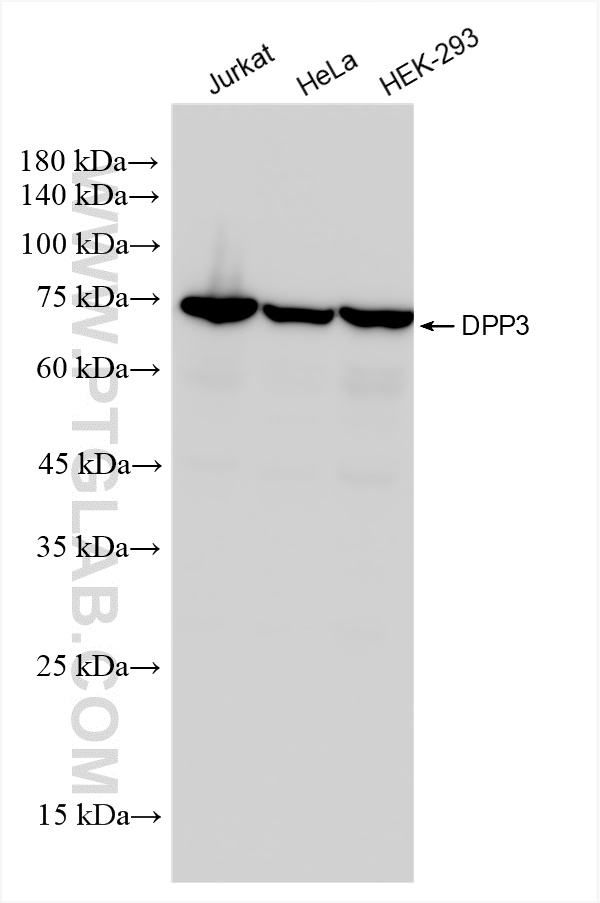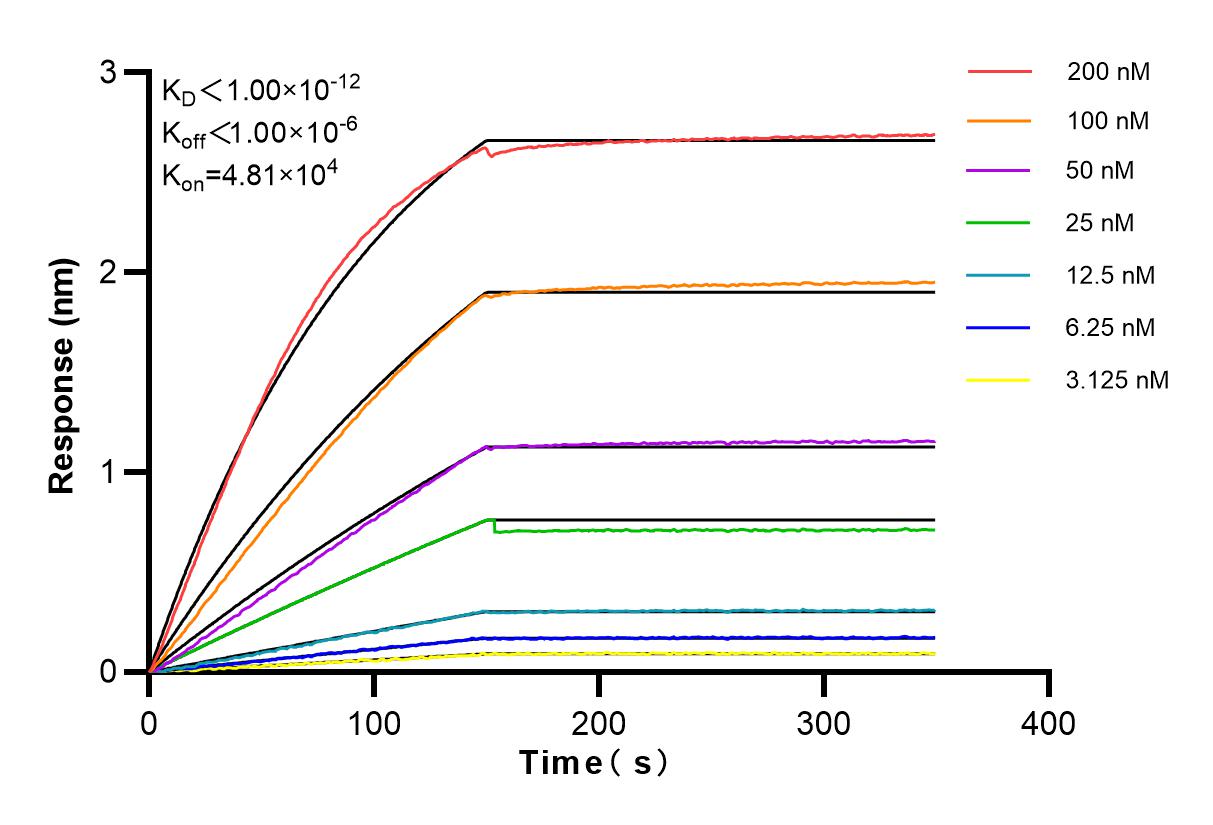验证数据展示
经过测试的应用
| Positive WB detected in | Jurkat cells, HeLa cells, HEK-293 cells |
推荐稀释比
| 应用 | 推荐稀释比 |
|---|---|
| Western Blot (WB) | WB : 1:5000-1:50000 |
| It is recommended that this reagent should be titrated in each testing system to obtain optimal results. | |
| Sample-dependent, Check data in validation data gallery. | |
产品信息
84173-3-RR targets DPP3 in WB, ELISA applications and shows reactivity with human samples.
| 经测试应用 | WB, ELISA Application Description |
| 经测试反应性 | human |
| 免疫原 | DPP3 fusion protein Ag1022 种属同源性预测 |
| 宿主/亚型 | Rabbit / IgG |
| 抗体类别 | Recombinant |
| 产品类型 | Antibody |
| 全称 | dipeptidyl-peptidase 3 |
| 别名 | DPP III, Dipeptidyl peptidase III, Dipeptidyl peptidase 3, Dipeptidyl arylamidase III, Dipeptidyl aminopeptidase III |
| 计算分子量 | 83 kDa |
| 观测分子量 | 73 kDa |
| GenBank蛋白编号 | BC007221 |
| 基因名称 | DPP3 |
| Gene ID (NCBI) | 10072 |
| RRID | AB_3671730 |
| 偶联类型 | Unconjugated |
| 形式 | Liquid |
| 纯化方式 | Protein A purfication |
| UNIPROT ID | Q9NY33 |
| 储存缓冲液 | PBS with 0.02% sodium azide and 50% glycerol , pH 7.3 |
| 储存条件 | Store at -20°C. Stable for one year after shipment. Aliquoting is unnecessary for -20oC storage. |
背景介绍
DPP3 (dipeptidyl-peptidase 3), also known as DPPIII, is one of the dipeptidyl aminopeptidases, that belongs to the peptidase M49 family. DPP3 is a metalloenzyme containing one Zn2+ ion in its active site. Furthermore, It was shown to have a novel zinc-binding motif ( HELLGH). DPP3 has been reported as an important enkephalin-degrading enzyme in the central nervous system, in human neutrophils. It has 3 isoforms produced by alternative splicing. Increased activity of DPP3 is associated with endometrial and ovarian cancers.
实验方案
| Product Specific Protocols | |
|---|---|
| WB protocol for DPP3 antibody 84173-3-RR | Download protocol |
| Standard Protocols | |
|---|---|
| Click here to view our Standard Protocols |

